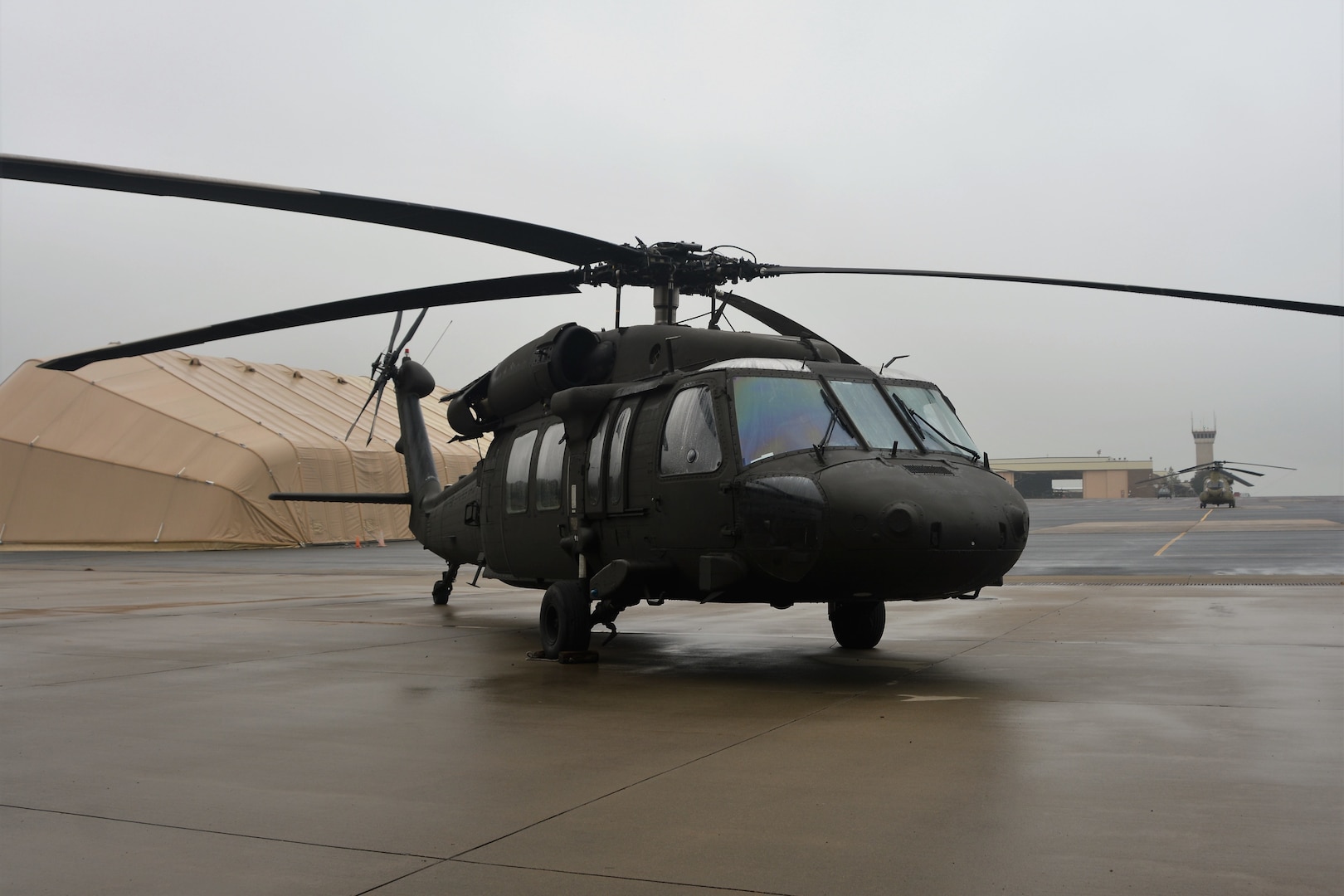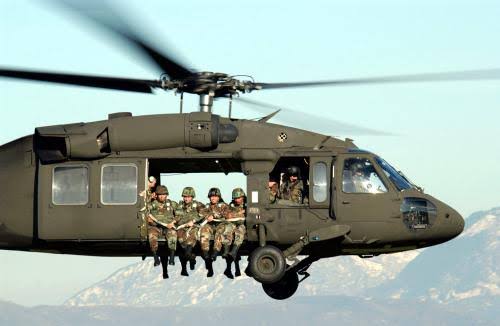UH 60 Helicopter: Advanced Avionics and Combat Systems
UH 60 Helicopter: Advanced Avionics and Combat Systems
Blog Article
The Function of Airplane in Shaping International Transportation and Trade Characteristics
The advancement of aircraft has indelibly changed worldwide transport and profession dynamics, helping with unprecedented levels of connectivity and performance. Via the establishment of robust air freight networks, services can now navigate global markets with impressive rate and agility, consequently redefining supply chain strategies. This change is not without its obstacles, as the air travel industry grapples with sustainability worries and regulatory stress. As we discover the multifaceted impacts of airplane on international profession, it is vital to take into consideration exactly how these variables will form the future landscape of aeronautics and its duty in the economic climate.

Development of Air Transportation
The evolution of air transportation has been marked by considerable technological advancements and advancements that have changed the method people and products relocate throughout the globe. From the Wright siblings' first powered flight in 1903 to the development of supersonic jets, each landmark has highlighted the ruthless quest of performance and speed in air travel. Early aircraft were primarily basic, restricted by engine power and architectural honesty. The introduction of innovative products and the rules of aerodynamics in the mid-20th century led to substantial renovations in aircraft performance, integrity, and safety.
The latter component of the 20th century saw the emergence of business aviation as a practical mode of transportation, defined by the introduction of jet engines, which revolutionized flight by substantially lowering flight times. Additionally, technologies in navigating and interaction technologies have actually boosted functional effectiveness and security, permitting for more complicated flight routes and schedules. The rise of air freight in parallel with guest services has even more underscored the flexibility of air travel. As we want to the future, arising modern technologies such as self-governing and electric airplane assurance to redefine the air transport landscape, guaranteeing continued development and adaptation to global demands.
Influence On Global Trade
Air transportation has exceptionally improved global profession by promoting the swift movement of goods throughout substantial ranges. This expedited logistics capability enables services to respond swiftly to market demands, consequently enhancing supply chain performance. The capability to move perishable items, high-value products, and time-sensitive products has opened up brand-new markets and possibilities for numerous industries, substantially affecting trade patterns.
Additionally, the advancement of air freight networks has fostered globalization, making it possible for business to resource products and products from different parts of the globe effortlessly. This interconnectedness decreases preparations and costs, allowing services to continue to be competitive in a progressively worldwide industry. In addition, air transport plays an important function in e-commerce, where consumer expectations for rapid shipment have driven a surge sought after for air freight services.
The impact of aircraft on international trade extends to the development of calculated profession routes, linking areas and facilitating global partnerships. Nations that buy air transport framework frequently experience boosted economic growth and increased international straight investment. In general, the development of air transportation has not only transformed the logistics landscape yet has also end up being an important component in the characteristics of worldwide click this trade.

Financial Benefits of Aviation
A robust aeronautics market creates considerable financial advantages, adding to job development, tourism, and general economic growth - uh 60. The aeronautics market sustains countless tasks internationally, varying from straight employment in flight terminals and airlines to indirect functions in markets such as hospitality, transport, and logistics. According to sector records, for each job in the air travel industry, about 3.5 added work are produced in the broader economy
Tourist is a pivotal element of the financial advantages originated from air travel. Air travel assists in worldwide tourism, allowing tourists to explore varied destinations, which consequently stimulates regional economic situations. Countries that purchase their aeronautics infrastructure usually experience increased vacationer arrivals, leading to greater investing on solutions such as restaurants, destinations, and resorts.

Furthermore, aeronautics improves worldwide connection, enabling companies to access brand-new markets and resources efficiently. As an outcome, industries such as e-commerce and manufacturing benefit immensely from reputable air transportation, more driving economic development.
Difficulties Encountering the Aeronautics Market
Navigating a complicated landscape of governing, environmental, and economic obstacles, the aeronautics industry deals with significant obstacles that threaten its sustainability and growth. Rules bordering safety and safety and security are continuously developing, requiring recurring compliance and adaptation from airline companies and suppliers (uh 60). This can bring about increased functional expenses and source allocation that interferes with advancement and development initiatives
In addition, environmental concerns have actually ended up being paramount, with growing examination over carbon discharges and environmental pollution. The sector is under stress to embrace greener modern technologies and techniques, which commonly need significant financial investment in research and growth. Balancing these environmental obligations with the need for air traveling provides a substantial obstacle.
Economic variations, such as increasing fuel rates and geopolitical uncertainties, even more make complex the landscape. Airline companies regularly face volatile operating costs and rising and fall passenger need, which can influence earnings and lasting preparation. Labor shortages and skill gaps in vital areas add one more layer of complexity, impeding operational official site effectiveness.
Inevitably, resolving these complex difficulties is crucial for the air travel industry to keep its critical role in global transport and trade, while making sure strength and adaptability in a significantly affordable market.
Future Trends in Flight
Emerging modern technologies and shifting consumer preferences are poised to reshape the future of air travel considerably. The combination of artificial knowledge and device learning is expected to enhance operational performance, enhance airport terminal procedures, and boost customer care. Predictive analytics will assist in extra accurate need forecasting, enabling airline companies to optimize trip try this web-site timetables and prices models.
Sustainability is coming to be an essential motorist in flight, with the aviation sector progressively concentrated on lowering carbon discharges. Innovations in aircraft style, such as hybrid and electric propulsion systems, are being discovered to meet ecological targets. Moreover, the fostering of lasting aviation gas (SAFs) is anticipated to play an important function in attaining net-zero discharges by 2050.
Consumer preferences are shifting in the direction of individualized travel experiences. Airline companies are buying sophisticated data analytics to customize services and improve consumer involvement, making certain an extra tailored trip from booking to arrival. In addition, the rise of remote work may cause boosted need for leisure traveling, as individuals seek to combine work and trip.
Conclusion
To conclude, airplane dramatically affect global transport and profession dynamics by promoting fast motion and boosting supply chain efficiency. The evolution of air transportation has actually transformed worldwide trade, generating significant economic advantages while likewise offering difficulties that need tactical monitoring. Future fads show a continued dependence on air travel for commerce, emphasizing its important role in globalization and financial advancement. The continuous adaptation of the aviation market will be vital for sustaining its contributions to the global economy.
The latter part of the 20th century observed the emergence of business air travel as a practical mode of transport, identified by the introduction of jet engines, which revolutionized air travel by significantly minimizing flight times. The rise of air freight in parallel with guest services has additionally highlighted the flexibility of aviation. In addition, air transportation plays an important duty in ecommerce, where customer assumptions for rapid distribution have actually driven a rise in demand for air freight solutions.
In general, the evolution of air transportation has not just changed the logistics landscape yet has also come to be a crucial element in the dynamics of international profession.
Sustainability is coming to be a key chauffeur in air traveling, with the aeronautics sector progressively focused on lowering carbon discharges.
Report this page